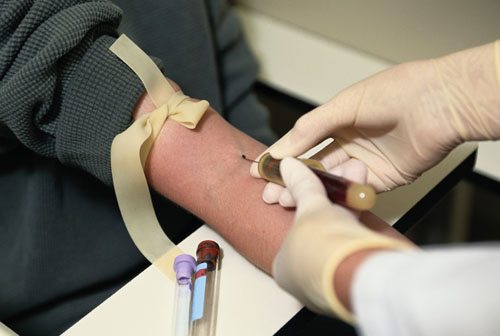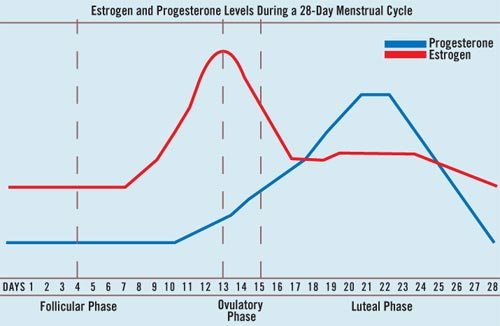
Some people would like to manage their own health care without having to depend on a doctor. They consult Google, diagnose themselves, and treat themselves. The Do-It-Yourself trend in lab tests continues apace. Without a doctor’s order, patients can get legitimate and/or questionable lab tests directly from various companies such as Any Lab Test Now and Doctor’s Data (which has sued Stephen Barrett for exposing their fraudulent “urine toxic metals” test on Quackwatch). Now a new company, Talking20, has jumped on the self-testing bandwagon with an innovative product that allows people to prick their finger, put a drop of blood on a card, and mail it in from anywhere in the world. Multiple tests are done on a single drop of blood. Results will be available online within a week or even sooner.
What does it cost?
Talking20 has several options:
- U-Pick Pack. For $99 you can select 5 tests from a list of 17, including Cholesterol (Total, HDL, and LDL), Estradiol (Estrogen), Progesterone, Testosterone, Homocysteine, CRP, HgA1c, Cortisol, and Vitamins A, B6, B9, B12, C, D3, and E. This works out to $20 per test, far less expensive than most other labs.
- 2 year Gold Card Pack: For $995 you get 24 cards and they will do all the tests currently available on every sample you send in. They anticipate that hundreds of tests will be added over the next 2 years, including numerous proteomic and metabolomic tests.
- 3 year Gold Card Pack: for $1295 you get 36 cards for all available tests. You can use these once a month or at any time you choose within the next 3 years. That works out to around $2 per test, which will drop much lower as more tests are added to the program.
- Designer Pack: for $4995 you can request a new test and their team will move that molecule to the front of the development queue and give you 36 cards. If they are unable to provide the requested test, the money will be refunded.
How is it done?
They use mass spectrometry, which they say is the gold standard by which other tests are validated. I asked a company representative why all labs wouldn’t use gold standard spectrometry directly instead of conventional tests. Here’s what she answered:
Mass spectrometry has been used for decades in the analysis of various analytes from small samples. Liquid chromatography combined with multiple reaction monitoring mass spectrometry is an emerging technique for examination of molecules from dried blood spots. As the quantitation of endogenous and exogenous molecules from dried blood spots is still a field of investigation and specific methodologies are currently in development, our testing platform does not meet the requirements of a clinical diagnostic test platform and will be offered for research use only.
So – other labs are not using this technology due to the fact that it would interfere with their ability to meet clinical diagnostic requirements. For the personal tracking and research use that we are hoping to facilitate mass spec is the best option. We trust the accuracy of our data and actually believe it is equal or better to lab results. For regulatory purposes we do not plan on seeking certification for clinical or diagnostic use, as the cost to us would force us to raise our prices above what we want to offer to our consumers.
What are customers led to believe?
There is a disclaimer on their website:
Products sold by Talking20 Inc. have not been evaluated by the FDA and are intended for research use only. They are not intended to diagnose, treat, cure, or prevent any disease. The information provided by www.talking20.com is not a substitute for a face-to-face consultation with your physician, and should not be construed as individual medical advice.
But elsewhere they claim that their results “will be just as accurate as any other testing service”. I think most customers will be led to believe they are getting reliable tests whose results they can use to guide their health care.
Customers are encouraged to track changes in lab test values as they experiment with things that might influence those numbers. An example in their video is a woman with familial high cholesterol who eats hamburgers throughout a day and does a series of tests during that day, finding that her cholesterol rises more than she expected.
They are also told that there is great research potential in having large numbers of consumers tracking lab results and making correlations. There is even a research consent document. I think it is unlikely that any such research could be published or relied on without validation of the accuracy of their tests. Even if their results were validated and they accumulated a huge body of data, fishing in that sea might catch more old boots than edible fish. Good science requires more systematic data collection.
What’s the benefit?
As with any screening test, an occasional unexpected finding will lead to earlier diagnosis of a disease, and there will be testimonials that screening “saved my life”. Following cholesterol levels at frequent intervals may help motivate patients to comply with diet and medication. Patients may reconsider their use of vitamins and other diet supplements if they find no correlation between intake and improved blood levels, or between blood levels and symptoms. Patients who were going to get these tests anyway will save money.
What’s the harm?
People will be doing these tests and drawing their own false conclusions. They have no way of knowing what the results mean for their health. Some of the problems:
- Definition of normal. Normal test results are determined by testing a large number of presumably normal people and cutting off the ends of the resulting bell curve. Typically, everything within 2 standard deviations of the mean is arbitrarily defined as normal. But that doesn’t mean every individual outside 2 standard deviations is abnormal, nor does it guarantee that everyone within the limits is normal. Imagine measuring the height of thousands of people and defining the extremes as abnormal. A man who is 6 feet 7 inches tall would be defined as abnormal, but that height might be perfectly normal for him, and someone in the “normal” range might have an excess of growth hormone with acromegaly.
- False positives. Even without considering lab errors, when you do 20 lab tests on a healthy person, you are likely to get one false positive. Doing 100 tests would give you an average of 5 abnormal results that were of no significance to the person’s health, but that would lead to worry and further testing.
- Uncertain meaning. Let’s say your vitamin E level is below the normal limits on the test. Does that mean something is wrong with you? Does it mean you should take vitamin E supplements? Would raising the level improve your health or reduce your risk of death? We don’t know: the necessary studies have not been done.
- Margin of error. There is a margin of error in any lab test. If you repeat a cholesterol test 5 times in a row, you will get 5 different readings. I once had a patient who would agonize over a 5 point difference in successive cholesterol readings, and was not able to understand that those results were not significantly different. Blood alcohol tests have been ruled inadmissible in court when the lab failed to report the margin of error; a blood test showing 0.93 with a 0.20 margin of error might mean an actual level of 0.73.
- Temporal fluctuations. Some blood levels can fluctuate widely over the course of a single day. In the case of female hormones, the levels vary continuously over the menstrual cycle. A quick glance at this graph shows why a one-time measurement of progesterone or estrogen levels is misleading. A level that is normal in one phase of the cycle would be abnormal in another phase. Women who adjust their use of bioidentical hormones as advised by Suzanne Somers are acting outside the realm of science.
Services like Talking20 are likely to attract the hypochondriacs, the worried well, the obsessive-compulsives, and the self-absorbed navel gazers. They are likely to do more harm than good. If you have ever had an abnormal test result and continued to worry even after a follow-up test was normal, you will know what I mean. People will inevitably draw their own conclusions from the data, resulting in unnecessary worry, expense, and useless lifestyle changes. Doctors are likely to be confronted with patients concerned about insignificant findings and false positive results from these tests, and some patients may come to distrust their doctors over these issues and reject conventional medical care.
Conclusion: More tests do not equal better health
Sometimes doctors order a lot of tests in the hope that something will turn up and are left scratching their heads because the “serum porcelain level” is elevated and they have no idea what that means or what to do about it. Ideally, doctors shouldn’t go on “fishing expeditions” in the laboratory. They should only order lab tests when they understand the test and when the results are likely to affect the management of the patient. Consumers indiscriminately doing 17 tests (and eventually hundreds or even thousands of blood tests) on themselves is a very bad idea. When the testing method has not been validated, it’s an even worse idea.
Of course, if this technology is validated and developed to the point that any number of indicated tests can be done on a drop of blood at very low cost, I will be among the first to celebrate.


